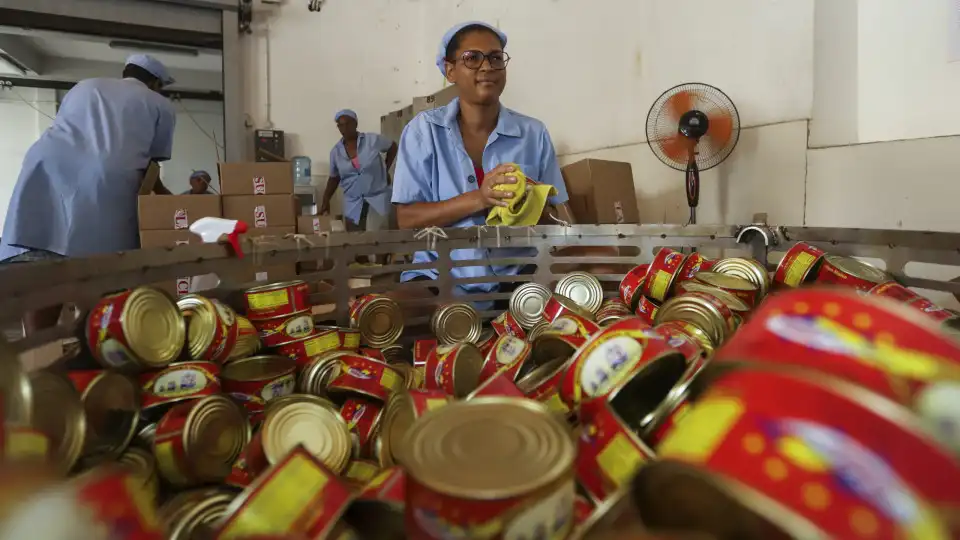EU extends customs benefits to canned products from Cabo Verde
The European Union (EU) agreed to maintain the customs benefits on imports of canned and prepared fish from Cape Verde, even with raw materials from other countries, for two more years, but issued warnings.

© Lusa

Economia Cabo Verde
"A derogation [partial repeal of the obligation of origin] is not the most justified instrument for finding a long-term solution to the structural problems of the Cape Verde fishing industry", reads the regulation published on the official EU portal and consulted today by Lusa.
Even so, "due to its recurring economic difficulties and the absence of alternative solutions, Cape Verde should be granted, under strict conditions, a temporary derogation" of the rules of origin, it adds.
Cape Verde benefits from the Generalised System of Preferences (GSP+) to encourage sustainable development and good governance, which provides a customs reduction on the entry of various products into the EU, imported by the member states.
However, due to the lack of an industrial fleet, among other reasons, the country is unable to fish enough, needing to import raw materials to feed its canning industry, whose sales to Europe (mainly of tuna and mackerel) lead the archipelago's merchandise exports.
The customs benefits are important for the competitiveness of Cape Verde's canned goods and, as in a closed circuit, it is argued that without them it will not be possible to develop the sector and end the derogations.
Cape Verde also complains about the delay in the entry into force of the EU's Economic Partnership Agreement (EPA) with West Africa, under negotiation for more than 20 years, but without agreement from all countries, and which would give access to more flexible rules of origin.
The derogations for canned and prepared fish in Cape Verde have been in succession since 2008, and, in this latest one -- published on 6 May --, the EU indicated that its duration "should be limited" to a period of two years (the previous derogation lasted three years, until the end of 2023), which "will allow Cape Verde to make efforts to carry out the necessary structural adjustments in the fishing sector, with a view to complying with the rules of origin applicable to the products in question".
In addition, Cape Verde is asked to correct "deficiencies" that have been detected "in administrative cooperation with the customs authorities of the EU member states, within the scope of verifying proof of origin in the fishing sector".
The new derogation extends the one applied in 2021, has retroactive effects from 1 January of this year, extending until the end of 2025, and covers 5,000 tons of tuna fillets and loins (raw, cooked and frozen), 3,000 tons of sardine and mackerel fillets and 1,000 tons of smooth jewfish or jewfish (sea bass) fillets, any of the species as 'prepared' or canned.
According to statistical data gathered by the Bank of Cape Verde (BCV), seafood (canned fish and frozen fish) accounted for 78.5% of the value of goods exported by the country in 2023, in a proportion that has always been dominant.
The export of that fish was worth 4.3 billion escudos (almost 40 million euros) in 2023, a value 15% higher than that recorded in the previous year, in a foreign trade relationship in which Spain is the country that buys the most from Cape Verde.
Read Also: Cape Verde celebrates 1st Fishmonger's Day recognising great sacrifice (Portuguese version)

Descarregue a nossa App gratuita.
Oitavo ano consecutivo Escolha do Consumidor para Imprensa Online e eleito o produto do ano 2024.
* Estudo da e Netsonda, nov. e dez. 2023 produtodoano- pt.com





